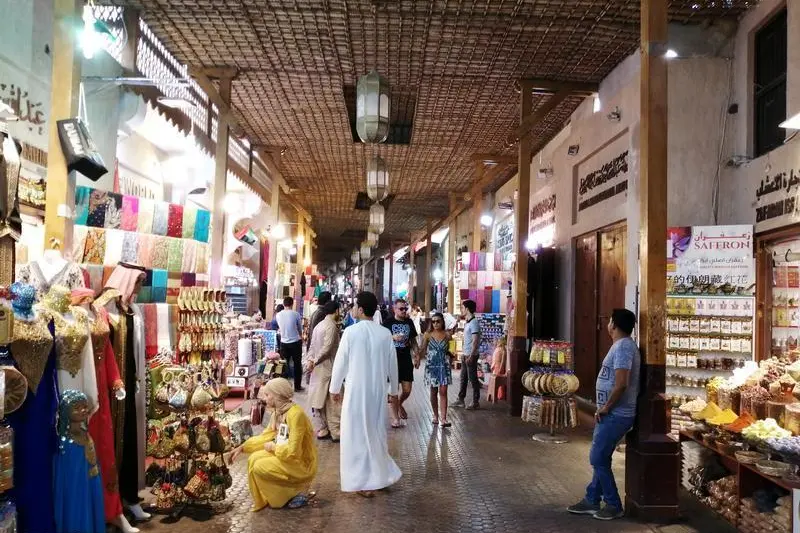PHOTO
Retailers in the UAE and the rest of the Middle East and North Africa (MENA) region have been severely impacted by the coronavirus, but they will be among the first to bounce back quickly once the pandemic is contained, according to a new analysis.
Colliers International, in its latest white paper released on Wednesday, examined the widespread impact of the disruptions caused by the pandemic on the retail and development sector, and recommended a series of measures that businesses should implement, to mitigate the current hardships.
The advisory company said mall owners should beef up their online presence, highlight virus prevention and screening measures and offer rent breaks to tenants. Other businesses can also consider home deliveries.
Severe impact
The numerous lockdowns and quarantine measures that are designed to curb the spread of coronavirus have caused severe economic pain to various businesses worldwide.
Mall owners in many markets have shut down retail stores, cafes and restaurants, leaving hundreds of thousands of workers either out of jobs or at risk of unemployment. Within the Gulf Cooperation Council (GCC) region, Alshaya, a major franchise operator of global brands, including Starbucks, have recently reported a 95 percent decline in revenues.
“Shopping centers continue to close as governments implement varying degrees in a bid to thwart transmission of the virus. Countries with nationwide closures include the UAE, Saudi Arabia, Kuwait and Egypt, dramatically impacting retailer operations which will have widespread implications, particularly for mall owners/ operators who are likely to see major disruptions in lease payments,” said Ricardo Bergsma, director of leasing and retail advisory services at Colliers International MENA.
Among the hardest hit, Colliers said, are entertainment and leisure categories, with cinemas in shopping malls being closed down due to their social nature.
Businesses in luxury comparison retail, as well as full-service restaurants, are suffering as well, but the latter has the ability to mitigate the impact by experimenting with takeout/delivery options.
Essential categories
Bergsma, however, noted that while non-essential retail is going through tough times, operators of groceries and supermarkets are seeing unprecedented demand, with businesses like Carrefour in the UAE seeing a 300 percent increase in online orders and 59 percent increase in new customers onto its e-commerce site.
Dr. Suhail Al Bastaki, director of happiness and marketing department at Union Coop, told Zawya that they have also seen a “significant increase” in demand for grocery deliveries and app downloads for its web store, as the UAE government has encouraged everyone to stay at home.
“E-commerce metrics have shown a significant increase compared to the previous periods. We have seen constant progress in all parameters of online shopping [ including] visits, retention and conversion, all of which indicate a considerable increase of consumer demand,” Al Bastaki said.
Kamal Vachani, group director of Almaya Group, which operates 50 supermarkets and groceries in the UAE, said bookings for deliveries have gone up by 30 percent since the outbreak, prompting them to increase the size of their delivery staff by 10 percent.
Colliers noted that any increase in sales or profits at grocery stores will likely be offset by increase in staffing, sudden changes in supply chains, temporary pay increases for frontline workers and reduced opening hours.
“Overall, [however,] we are seeing retail as one of the fastest sectors to recover when the market bounces back to normality,” said Bergsma.
On March 23, the UAE’s Ministry of Health and Prevention and the National Emergency and Crisis and Disasters Management Authority announced the closure of all shopping malls in the country.
Pharmacies and supermarkets have been excluded from the closures and have remained open, while restaurants have the option to offer home deliveries.
On Tuesday, the Dubai Economy said it is allowing some food shops to open before Ramadan, particularly those that sell meat, fruits, vegetables, chocolates, sweets, fish, coffee and tea.
(Writing by Cleofe Maceda; editing by Seban Scaria)
#coronavirus #UAE #retailers #MENA #Economy
Disclaimer: This article is provided for informational purposes only. The content does not provide tax, legal or investment advice or opinion regarding the suitability, value or profitability of any particular security, portfolio or investment strategy. Read our full disclaimer policy here.
© ZAWYA 2020




















